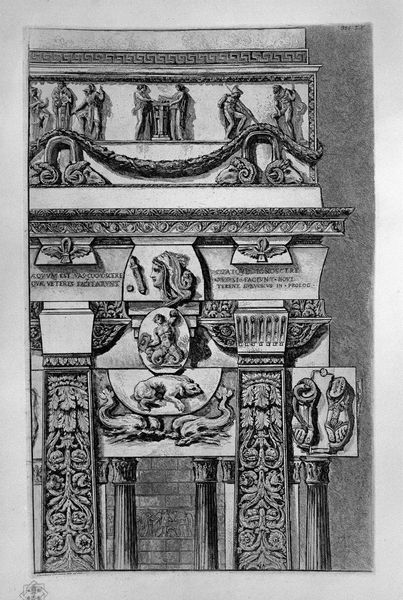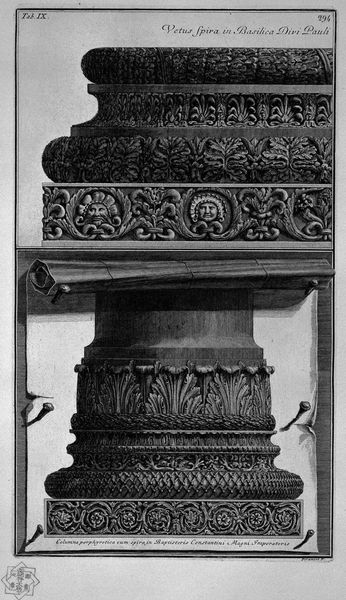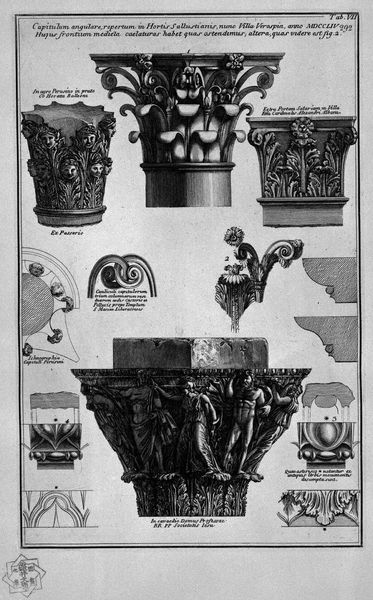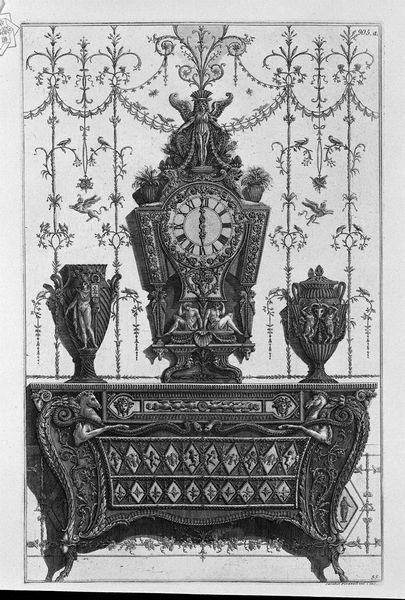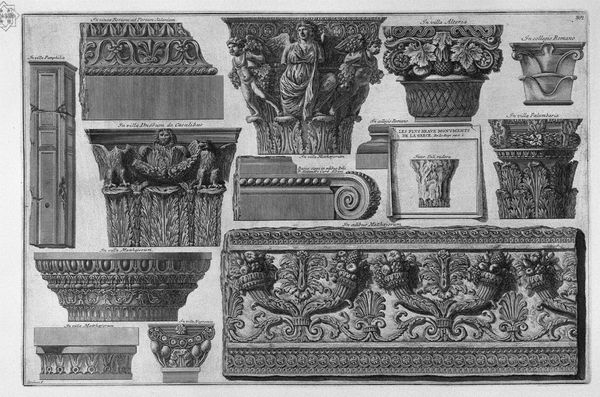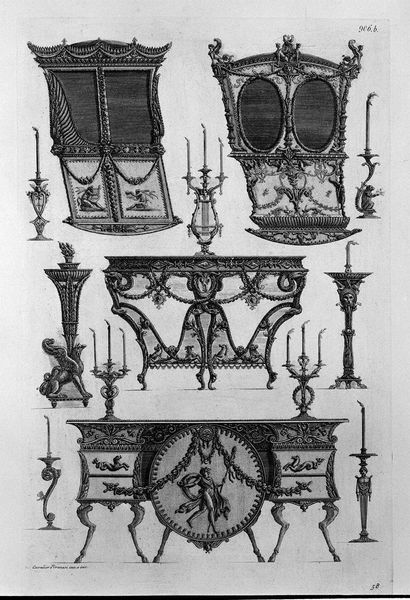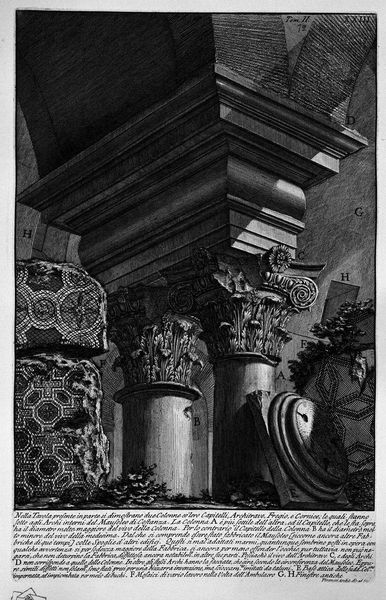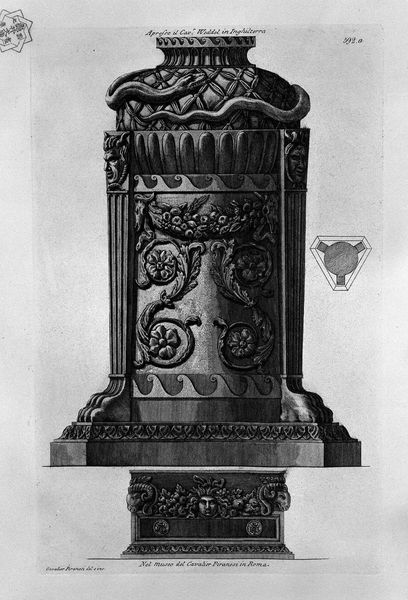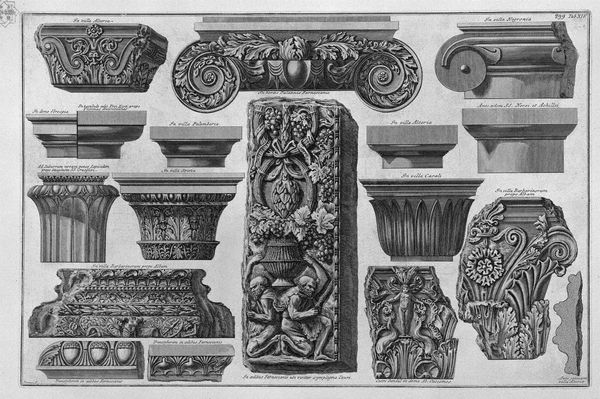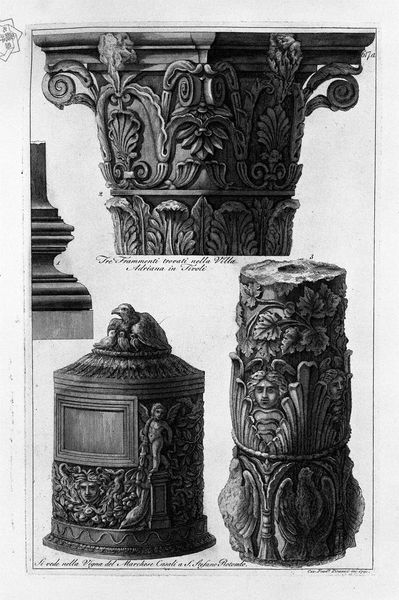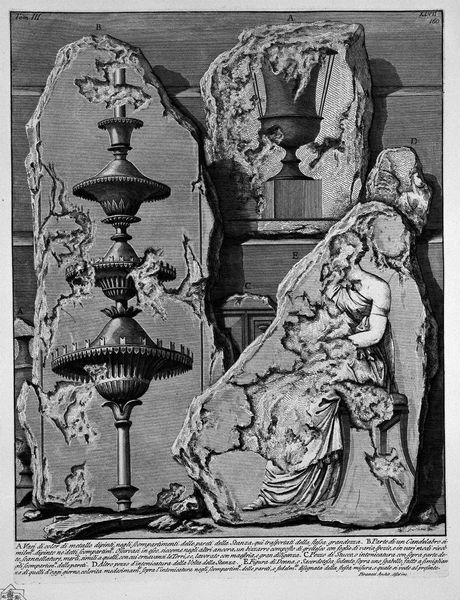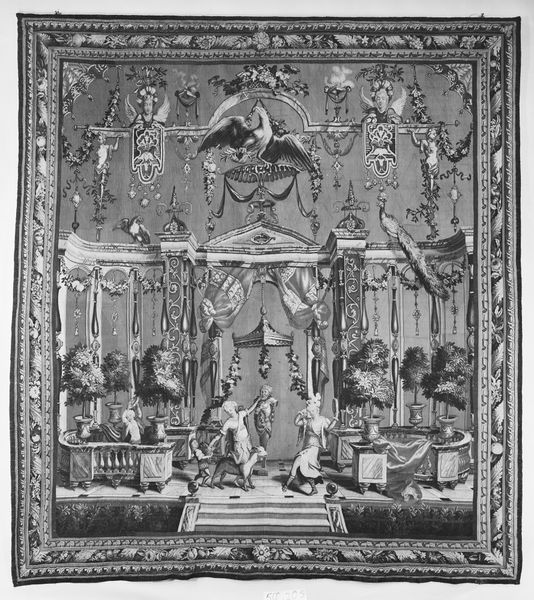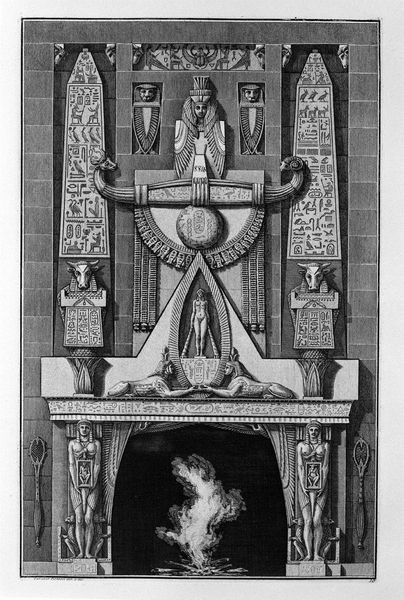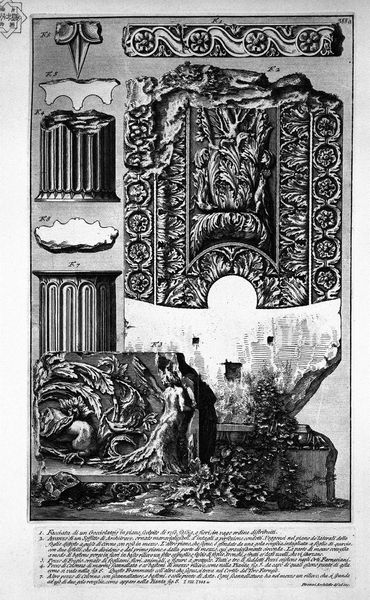
The Roman antiquities, t. 2, Plate XXV. Large urn of porphyry, within which is believed to have been placed the body of Constance. 1756
0:00
0:00
print, etching, photography, sculpture
#
neoclacissism
# print
#
etching
#
sculpture
#
classical-realism
#
figuration
#
form
#
photography
#
cupid
#
geometric
#
framed image
#
ancient-mediterranean
#
sculpture
#
black and white
#
line
#
history-painting
Copyright: Public domain
Giovanni Battista Piranesi created this etching, titled "Large urn of porphyry, within which is believed to have been placed the body of Constance," as part of his series on Roman antiquities in the 18th century. Piranesi lived in a time when Europe was rediscovering and reinterpreting its classical past, influencing art, architecture, and political thought. The urn, meant to house the remains of Constance, a figure of nobility, speaks volumes about power, death, and remembrance in Roman society. The urn’s decoration, with its cherubs and classical motifs, blends religious and cultural symbols and offers a glimpse into the rituals surrounding death and commemoration of the elite. Piranesi's detailed rendering invites us to consider the emotional weight of such objects. It moves beyond being a mere historical record. Instead it captures the sense of loss, honor, and the human desire to leave a lasting mark. This image highlights how the past shapes the present and how we continue to engage with the legacies of those who came before us.
Comments
No comments
Be the first to comment and join the conversation on the ultimate creative platform.
